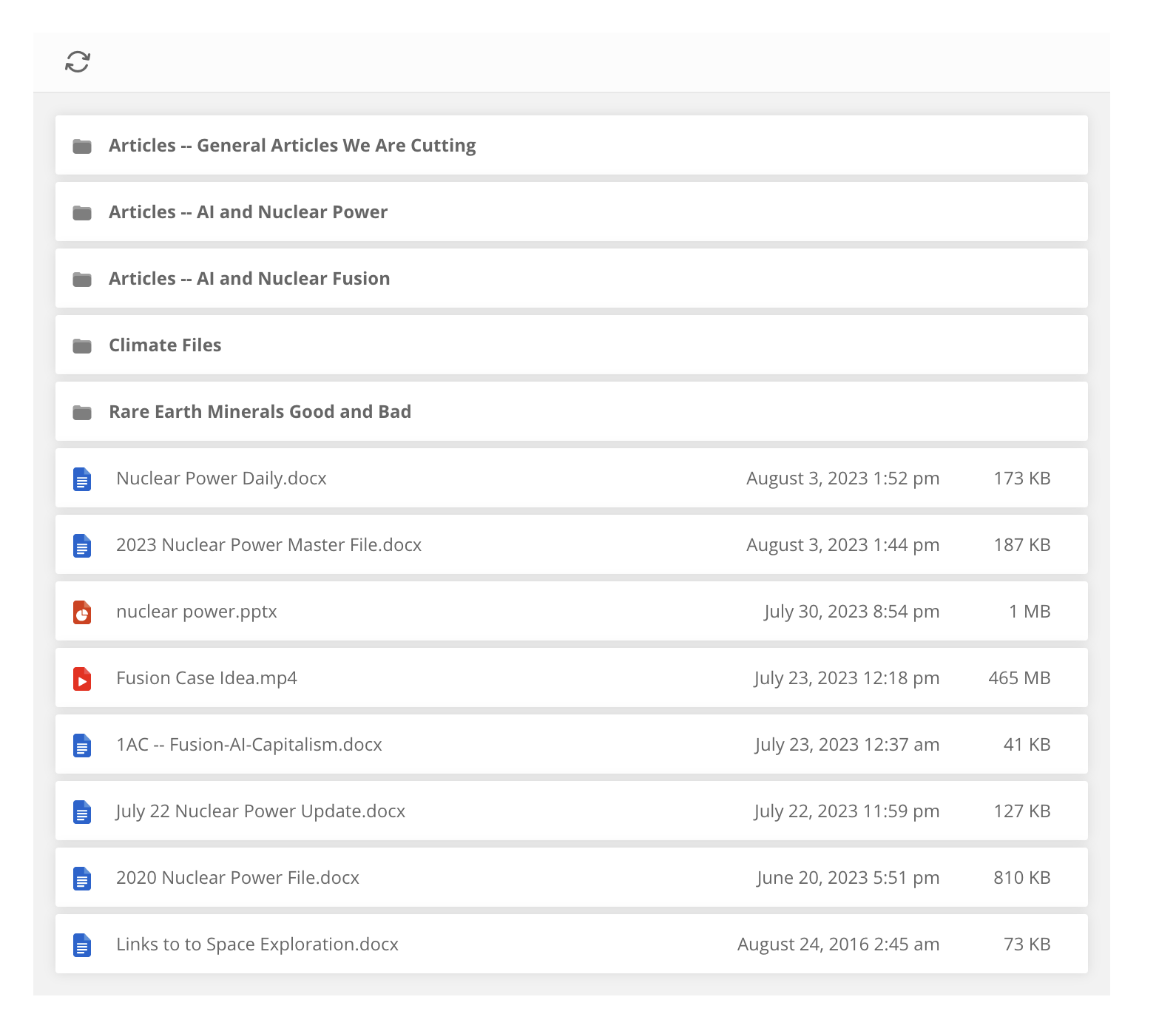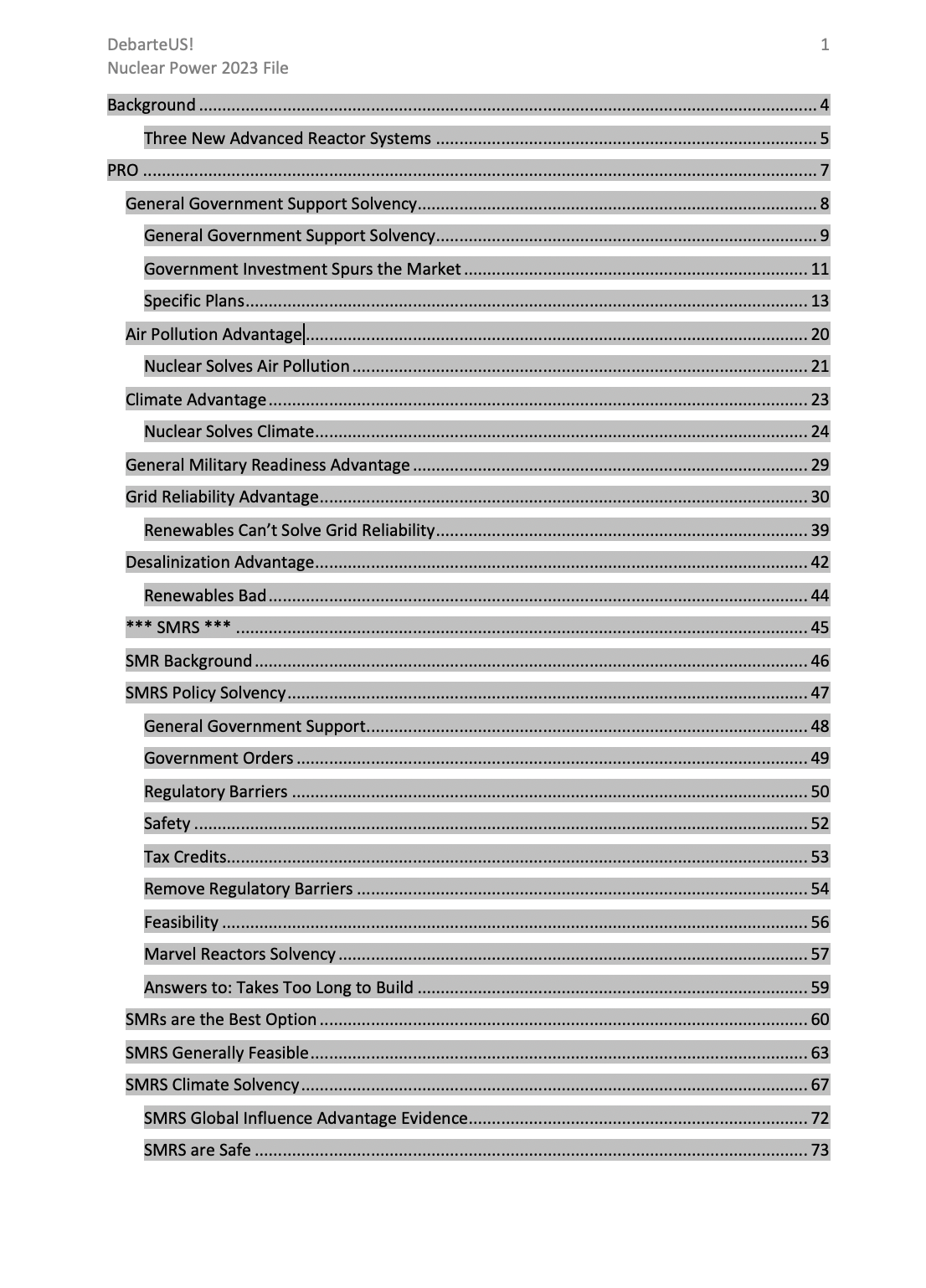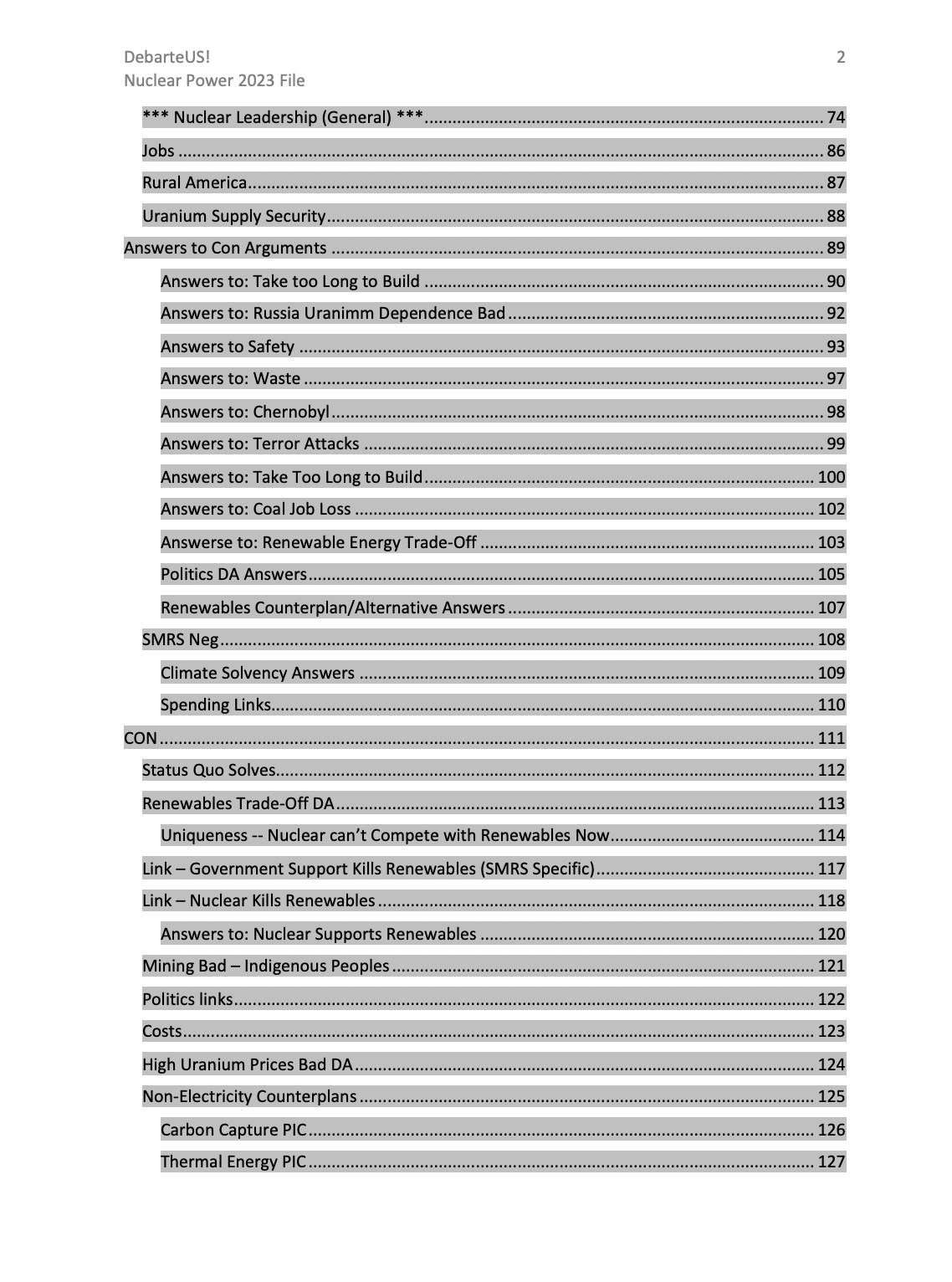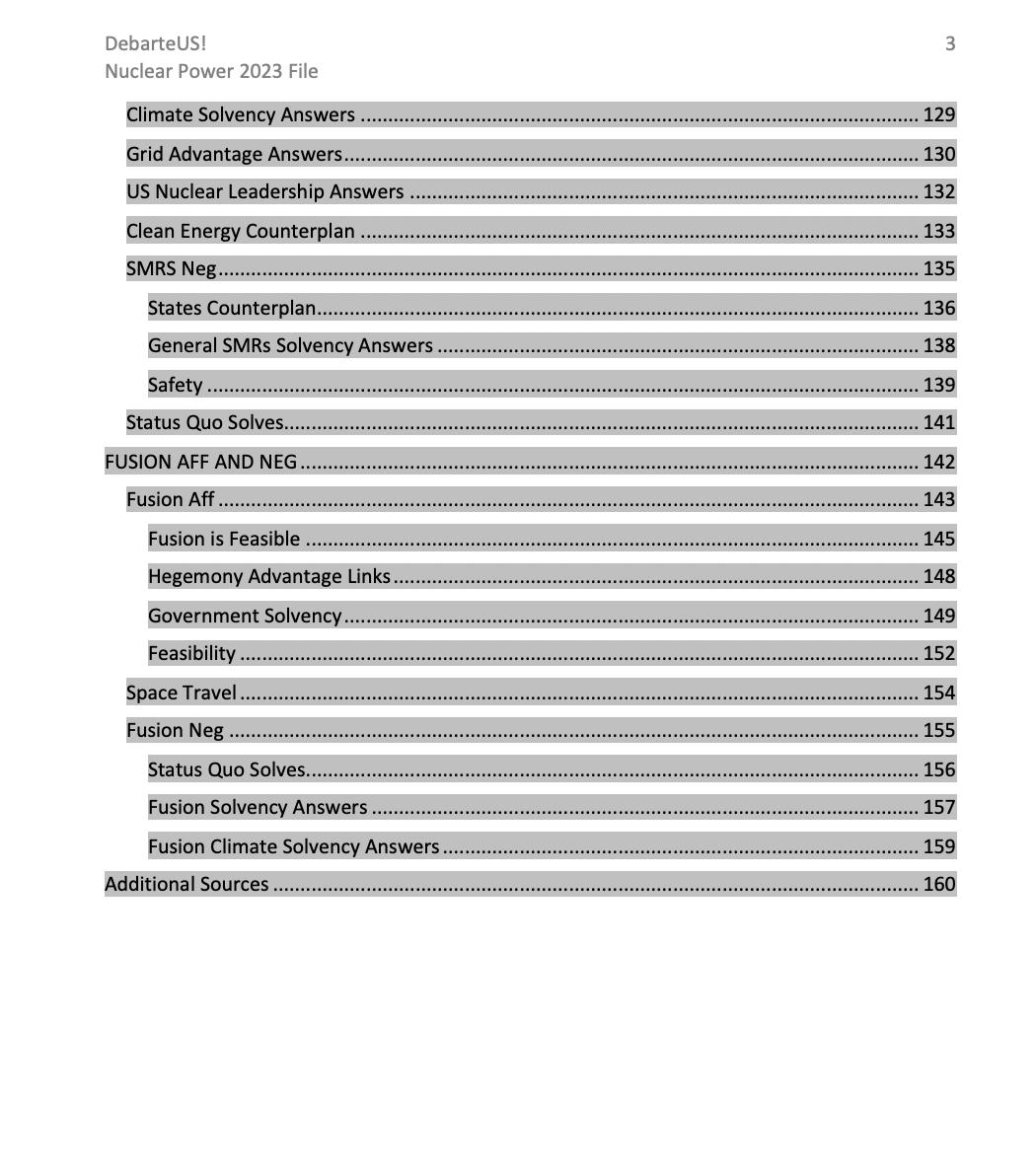Access requires a paid subscription. Year-long (until June 2024) subscriptions are $69 for an individual student and $299 for a school. School subscriptions allow access for 100 users.
Affirmative
Advantages
Climate change
Air pollution
Grid reliability
Secure power for the military
Jobs/Rural America
Oil dependence bad
Renewables bad – pollution
Renewables bad – REM dependence bad
US nuclear leadership good (non-proliferation
Developing new uranium supplies
Reactor Types
“Large/conventional reactors” – advantages above
SMRs – advantages above + relative safety, relative waste disposal, speed of build
Fusion – Advantages above + AGI (artificial general intelligence) “implementation,” space travel, hegemony (from control of limitless energy and lower business costs)
Negative
Disadvantages
Politics (Democrats oppose)
Costs – general deficit/debt
Renewable energy trade-off
Hurts oil producing economies
CO2 good – ice age, agriculture production
Radiation and mining in poor and indigenous communities
Prolif – supports the nu8clear fuel cycle globally
Capitalism K – supports industry
Safety
Accidents
Radiation exposure
Counterplans
Renewable energy trade-off
Different type of reactors (if the aff specifies)
Advantage counterplans vs climate change (carbone capture, etc)
Ks
Capitalism K – supports industrry
Radiation and mining in poor and indigenous communities
Nuclearism
Tech K





